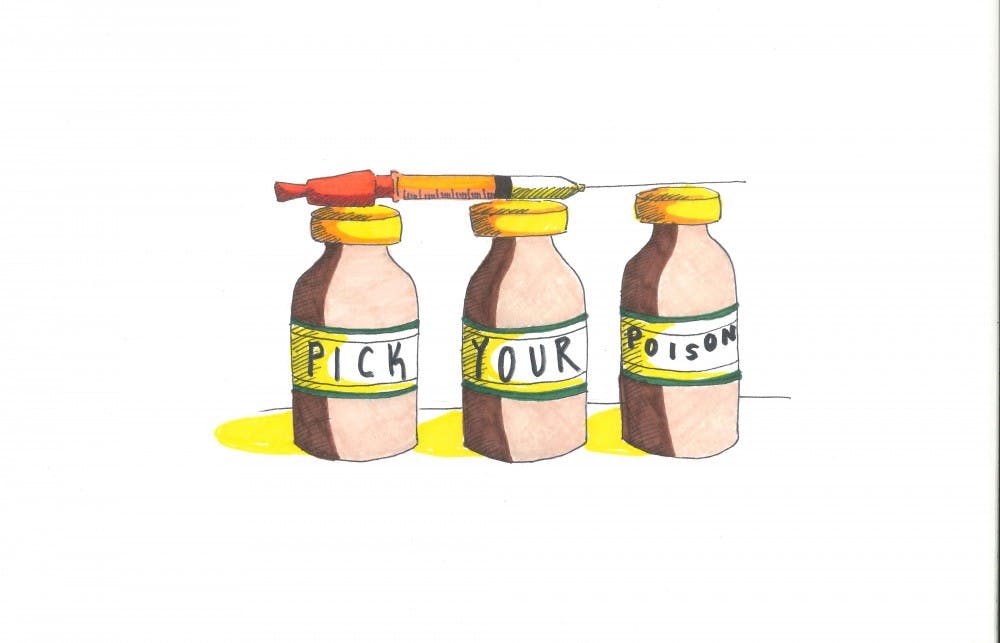Roy Lee Ward, an inmate on death row in Indianapolis, is contesting the legality of Indiana’s lethal injection process to the Indiana Supreme Court after the Court of Appeals of Indiana ruled that Indiana prisons were unable to follow through with their executions.
According to Ward's attorney, David Frank, a state agency must choose its lethal injection drug cocktails by nature of a public hearing.
When new death penalty protocol was adopted in 2014, adding a new drug called methohexital, there was no venue for public comment. It was decided by unelected state agencies.
State transparency for the drugs being used in executions is important, and those on death row have the right to know the specific drugs being used in lethal injections. The Editorial Board believes that one's status as an inmate does not preclude that person from the right to transparency.
Ward is wary of the combination that the Department of Correction has chosen due to the fact that its chosen ingredient methohexital has never been used for lethal injections in any other state. The other two drugs being used are potassium chloride and pancuronium bromide.
At the same time, Ward does not have a lot of standing to contest his own sentence. He was originally condemned with capital punishment for the rape and murder of a 15-year-old girl in 2001. At this point, he is only delaying his own death sentence.
Also, adding extra provisions for the Department of Corrections to obtain drugs for legal injections makes the entire process extremely complicated.
Understandably, drug companies are wary about supplying their drugs for lethal injections. For many pharmaceutical companies, such as Johnson & Johnson and Akorn Pharmaceuticals, supplying medicines for a purpose other than furthering health and wellness is against their mission statements.
Gov. Eric Holcomb added a budget provision to protect the confidentiality of drug manufacturers in order to obtain these drugs for lethal injection more easily.
This confidentiality for drug manufacturers is important and a necessary process for the state agency to obtain safe drugs for use in lethal injection. In the past, whenever states could not obtain the drugs they needed for a lethal injection, they have created drug cocktails from whatever drugs are available to them, leading to many gruesome botched executions.
For example, in 2014, a death row inmate in Alabama struggled violently after being administered drugs for lethal injection and died 43 minutes later of a heart attack. In Alabama in 2016, an inmate gasped and coughed for 13 minutes after his lethal injection.
While the right to transparency about the drugs being administered for these inmates is important, the right to a safe and painless death is just as important and cannot be ignored.
The issue of constitutionality regarding the death penalty and lethal injections comes into play when determining whether or not drugs used in lethal injection cocktails violate the provisions of cruel and unusual punishment outlined in the 8th Amendment.
Painful, botched executions are absolutely examples of cruel and unusual punishment, which is why the state should be able to take the necessary measures to obtain safe drugs for lethal injection cocktails.
The Supreme Court of Indiana questions why Ward has decided to bring up the issue of transparent drug choices now. Justice Steven David claims the Department of Corrections has been following the same procedure for the past 25 years with no objection.
While Ward’s objection and criticism of the process is valid, states should value the rights to their inmates safety above all else.




